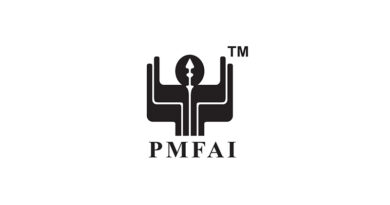Sugar Industry Urges GST Parity for Flex Fuel Vehicles Amid E20 Milestone
29 August 2023, New Delhi: With the target of 10% ethanol blending being achieved, the country’s focus now turns to the ambitious goal of reaching 20% blending by 2025-26, a goal charted by the Hon’ble Prime Minister. Industry stakeholders underline the importance of introducing measures that facilitate the adoption of Flex Fuel Vehicles (FFV), recognizing their pivotal role in meeting this target. Parity in GST on FFVs is one such measure.
Presently, FFVs are levied with a GST rate of 28%, a notable contrast to the 5% GST rate applicable to electric vehicles (EVs). This move will directly contribute to reducing the country’s fuel bill while simultaneously curbing carbon emissions from the transportation sector.
In a representation, the Indian Sugar Mills Association (ISMA) has put forth a resounding appeal to the Ministry of Road Transport and Highways for a relaxation in the Goods and Services Tax (GST) on Flex-Fuel Vehicles (FFVs).
Recognizing the significance of Flex-Fuel Vehicles (FFVs) as a vital instrument for a greener future, the industry underscores the crucial need for fiscal equilibrium. “Presently, FFVs are levied with a GST rate of 28%, a notable contrast to the 5% GST rate applicable to electric vehicles (EVs). We request parity in the GST rebate for FFVs, a move that will acknowledge ecological importance and empower consumers to seamlessly embrace environmentally conscious choices without bearing disproportionate financial burdens. Offering tax deductions for FFVs could incentivize the adoption of eco-friendly vehicles, promoting a greener transportation choice“ said Aditya Jhunjhunwala, President, ISMA.
ISMA also reached out to the Automotive Research Association of India (ARAI), who are working towards the development of anhydrous ethanol blends with gasoline, urging for a thorough exploration of the untapped potential inherent in E-100 hydrous ethanol blends. Taking inspiration from Brazil’s successful integration of such blends, India can envision an automotive landscape where cleaner fuel alternatives merge seamlessly, heralding a transformative era of sustainability.
Benefits of E100
The manifold benefits of ethanol-based fuel are significant and far-reaching. These blends herald an epoch of environmental mindfulness, dramatically curtailing greenhouse gas emissions, lessening dependence on fossil fuels, and elevating air quality. This audacious step aligns harmoniously with the global energy transition narrative, positioning India as a guiding star in the realm of sustainable energy practices.
Ethanol’s inherent economic viability over traditional gasoline further strengthens its stature as a commendable alternative. The cost advantage of E-100 hydrous ethanol in comparison to fuel ethanol facilitates consumer-friendly pricing, catalyzing a transition towards eco-conscious choices without imposing financial constraints. Moreover, the production costs, both operational and capital, associated with E-100 (hydrous ethanol) are notably lower than those incurred in the production of fuel ethanol (anhydrous ethanol with 99.6% purity), the latter being used for blending with petrol. This economic advantage can subsequently be conveyed to consumers through lowered prices of ethanol-blended petrol.
The Indian Sugar Mills Association anticipates an invigorating collaborative journey, traversing alongside governmental bodies and industry collaborators, to transmute the vision of a greener and sustainable future into a vibrant reality.
Also Read: Farming with a hybrid AD plant approach
(For Latest Agriculture News & Updates, follow Krishak Jagat on Google News)















